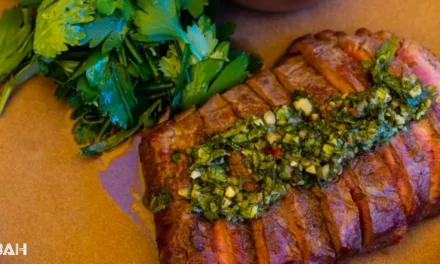The question of whether insects are halal (permitted) or haram (prohibited) in Islam has been debated by Muslim scholars for centuries. Halal refers to any object or action that is permissible to engage in or consume according to Islamic law. Here is a brief overview of the differing perspectives on insect consumption in Islam:
Summary of Key Points
| Position | Description |
|---|---|
| Insects are halal | Some insects like locusts are explicitly allowed in the Quran and insects have nutritional benefits |
| Insects are haram | Most insects have historically been prohibited, ambiguity means the default is haram |
“A difference of opinion has prevailed among the learned in this matter. Some have allowed the use of insects, while others have discouaged it.” – Al-Nawawi
The main schools of Islamic jurisprudence have held different views:
- The Shafi’i school argues that all insects except those harmful to humans are halal.
- The Hanafi, Maliki, and Hanbali schools prohibit all insects except locusts.
Recent debates have emerged around whether certification bodies should approve insects as halal and whether governments should ban insect-based foods over halal concerns. This article will explore the evidence and perspectives on both sides of this issue.
Arguments that Insects Are Halal
Some of the key evidence and arguments put forth in favor of insects being halal include:
-
Explicit allowance in the Quran – Locusts are specifically permitted for consumption in the Quran (Surah Al-A’raf 7:133). This suggests God made an exception for insects:
-
Nutritional benefits – Insects are a sustainable source of protein, vitamins, and minerals. Consuming insects has environmental and health advantages.
-
No clear prohibition – There are no verses in the Quran or well-known hadiths that explicitly prohibit all insects. The lack of a clear haram designation means insects could be halal.
-
Modern halal certifications – Some halal certification bodies like the Malaysian Department of Islamic Development have certified certain insect-based food products as halal.
-
Minority support from scholars – While not the majority view, some contemporary Islamic scholars like Dr. Khaled F. El Fadl have argued insects should be considered halal.
So while not universally accepted, there are reasonable arguments supporting the permissibility of insects in Islam.
Here is a draft section on the arguments against insects being halal:
Arguments Against Insects Being Halal
However, there are also many evidence-based counter-arguments for why insects could be considered haram (unlawful):
-
Majority opinion of classical scholars – The Hanafi, Maliki, and Hanbali schools of Islamic jurisprudence, which represent the majority of Sunni Muslims, prohibited the consumption of all insects except locusts.
-
Cultural taboos – Eating insects has been seen as distasteful and avoided in most Muslim cultures. Violating established cultural norms can be grounds for prohibition.
-
Ambiguity means default is haram – According to the legal maxim “al-asl fi al-ashya’ al-ibahah” (the default is permissibility), things are halal except what is made haram. However, scholars argue there is ambiguity around insects, so the default would be haram.
-
Locusts are a specific exemption – Some scholars argue that locusts were an extraordinary exemption that do not generalize to other insects.
-
Government bans – Countries like Qatar have banned insect-based foods over halal concerns, following traditional scholarly opinions.
So there are still many barriers towards mainstream acceptance of insects as halal foods in the Islamic world.
Contemporary Debates
The question of whether insects are halal remains an active discussion among modern Muslim scholars and policymakers:
-
Halal certification controversies – Malaysia approved insects as halal but other countries objected. Scholars differ on whether halal bodies should certify insects:
- For: Provides consumer guidance and oversight on permitted insects.
- Against: Would wrongly imply Islamic endorsement of insects.
-
Reformist vs conservative views – Some progressive scholars argue historic prohibitions were influenced by culture and insects should be halal. Traditionalists argue established rulings should be followed:
“One does not make the haram halal or the halal haram simply to suit the current temperaments or desires.” – Sheikh Hamza Yusuf
-
Insect-based startups – New companies like Aspire Food Group see opportunities for insect protein in Muslim markets but face hurdles.
-
Role of government – States enacting insect bans cite enforcing Islamic principles, but critics argue this intrudes on personal choice.
| Position | Countries |
|---|---|
| Permitted insect sales | Malaysia |
| Banned insect sales | Qatar, UAE |
This contemporary debate highlights divisions on interpreting Islamic law and applying it in modern contexts. There appears to be movement towards caution and maintaining traditional prohibitions on most insects.
Are Insects Halal – FAQ
Yes, insects are considered halal if they meet the conditions set by Islamic dietary laws. Insects are generally permissible to eat unless they fall into the category of haram (forbidden) foods.
Are locusts considered halal?
Yes, locusts are considered halal and permissible to eat according to Islamic teachings. There are references in the Quran and Hadith that mention the consumption of locusts.
Is there any specific guidance in Islamic teachings regarding the consumption of insects?
Islamic teachings do not explicitly mention all types of insects. However, scholars derive rulings based on principles and teachings from the Qur’an and Hadith. Different Islamic schools of thought may have varying opinions on this matter.
Is there a Halal certification for insect-based food products?
Currently, there is no specific Halal certification exclusively for insect-based food products. However, if the ingredients used in such products are halal, and the manufacturing processes comply with Islamic guidelines, they can be considered halal.
Is insects halal to eat?
Yes, if the insects are permissible to consume according to Islamic teachings and have been prepared in accordance with Halal requirements, they can be considered halal to eat.
What does Islamic law say about the consumption of locusts?
Islamic law permits the consumption of locusts are halal allowed to eat. The consumption of locusts was also practiced during the time of Prophet Muhammad (peace be upon him).
Are there any Hadith that mentions insects being halal?
Yes, there are Hadith that mention specific insects being permissible to eat. One such example is the Hadith where Prophet Muhammad (peace be upon him) reportedly allowed the consumption of locusts.
What is the ruling on consuming insects according to Fiqh?
In Islamic Fiqh (jurisprudence), the ruling on consuming insects varies depending on the school of thought and the specific circumstances. Here’s a general overview of the main positions:
Hanafi School: In the Hanafi school of thought, consuming insects is generally considered permissible, except for those that are harmful or poisonous. eg grasshopper worm and beetle.
Maliki School: The Maliki school also permits the consumption of most insects except for those that are harmful, poisonous, or repugnant.
Shafi’i School: The Shafi’i school permits the consumption of most insects, as long as they are not harmful or poisonous. However, there is some difference of opinion among Shafi’i scholars regarding certain types of insects.
Hanbali School: The Hanbali school has a stricter view on consuming insects. They generally consider it impermissible to consume any insect, except in cases of necessity or extreme need.
It’s important to note that all Islamic schools of thought agree on the prohibition of consuming certain harmful or poisonous insects, as well as animals that are explicitly forbidden in the Quran and Hadith, such as pigs, flesh of swine and carnivorous animals.
Additionally, there is a principle in Islamic jurisprudence called “urf” (custom) that takes into account local customs and practices. If consuming insects is a common and accepted practice in a particular society, some scholars may be more lenient in their interpretation.
As with any matter in Islamic Fiqh, individuals are encouraged to consult with knowledgeable scholars or religious authorities for specific guidance based on their circumstances and the school of thought they follow.
Conclusion
The debate around the permissibility of insect consumption in Islam has spanned centuries and continues today. There are good-faith arguments on both sides:
-
Arguments for insects being halal:
- Quranic allowance of locusts
- Nutritional benefits
- Lack of explicit prohibition
-
Arguments against insects being halal:
- Prohibition by majority of traditional scholars
- Violates cultural taboos
- Legal maxim of default prohibition
Contemporary discourse shows increased polarization between reformist voices advocating change and conservatives adhering to historic stances:
“Differences of opinion on this issue have persisted despite repeated deliberation. Wisdom lies in respecting both perspectives.”
| Position | General Stance |
|---|---|
| Reformists | Insects should be halal |
| Conservatives | Insects are haram |
In conclusion, there is no consensus among Muslim scholars historically or today on the halal status of insects. More research and discussion at high levels may be required before definitive guidelines can emerge. For now, opinions will continue to diverge based on methodology and principles for deriving Islamic law. Flexibility and mutual understanding on this issue may be prudent.




